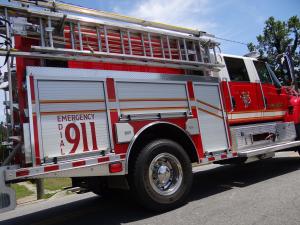By: Michael Klotz
Today, in the published opinion of Joseph Antonio v. SSA Security Inc. the Fourth Circuit affirmed the decision of District Judge Alexander Williams, Jr. of the District Court of Maryland. The issue on appeal was whether the Maryland Security Guards Act (“MSGA”) imposes liability on a security guard employer beyond the common law liability imposed under the doctrine of respondeat superior. The Fourth Circuit certified this question of state law to the Court of Appeals of Maryland, which concluded that the MSGA does not expand the doctrine of respondeat superior. On this basis, the Fourth Circuit affirmed the lower court decision granting summary judgment to the Defendant.
Facts
This case involves one of the largest residential arsons in Maryland history. On December 6, 2004, several men burned more than a dozen of homes in “Hunters Brooke,” a newly developed neighborhood in Charles County, Maryland. At the time of the fire, Hunters Brooke employed SSA Security, Inc. to provide security services for the complex. The evidence indicates that Aaron Lee Speed Sr. and William Fitzpatrick, who were working as security guards for SSA Security, Inc., carried out this arson. The motive for their crime was racial animosity against the African-Americans and other minorities living in the community. Ninety percent of the homes damaged were either owned by minorities or under contract to be purchased by minority buyers.
Procedural History
The Plaintiffs, thirty victims of the fire, filed this lawsuit against the arsonists in their individual capacities, as well as against SSA Security, Inc., ABM Industries Inc. (the parent company of SSA Security, Inc.) and Security Services of America, LLC (the predecessor of SSA Security, Inc.). The district court granted summary judgment to SSA Security, Inc. on the negligence-based claims of the Plaintiffs and on their claim under the MSGA. On appeal, the Fourth Circuit affirmed the decision granting summary judgment on the negligence-based claims, but certified to the Court of Appeals of Maryland the question of whether Maryland Security Guards Act expands the scope of respondeat superior such that an employer may be held liable for the off-duty criminal acts of a security guard employee that have been planned (at least in part) while on duty.
Applicable Law
The Maryland Security Guard Act states as follows: “A licensed security guard agency is responsible for the acts of each of its employees while the employee is conducting the business of the agency.” On March 2, 2015, the Court of Appeals of Maryland responded to the certified question posed by the Fourth Circuit. The Court of Appeals of Maryland analyzed the plain language of the MSGA, its context in the Maryland code, the legislative history behind this statute, and the policy considerations behind the law. On this basis, the Court of Maryland concluded that the law “has the same meaning as Maryland’s common law doctrine of respondeat superior.” Thus, the MSGA does not extend respondeat superior liability to an employer when an employee, working as a security guard, plans a crime during working hours.
Conclusion
The decision of the Fourth Circuit, once the certified question had been answered by the Court of Appeals of Maryland, was straightforward. The Fourth Circuit had already concluded that summary judgment was correctly granted to the Defendant on the negligence-based claims of the Plaintiffs. Given that the Court of Appeals of Maryland held that the MSGA does not expand respondeat superior liability beyond the existing common law standard, summary judgment was correctly granted on this claim.


